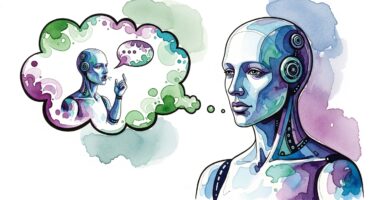Corporate technology and human resources departments are increasingly collaborating to manage the cultural and technological disruption caused by artificial intelligence, including the integration of “digital co-workers.”
The partnership between CIOs and HR leaders emerges as AI is already having a significant impact on the white-collar workforce, reports The Wall Street Journal.
With chief executives admitting the technology will lead to job losses, the remaining employees face a workplace transformed by new processes and AI agents. This requires a joint effort from IT and HR to retrain staff, manage fears, and redesign organisational structures.
Networking equipment maker Cisco is bringing its IT and HR teams together to determine how a “virtual staff of AI entities” will work alongside its approximately 86,200 employees.
CIO Fletcher Previn said this raises new organisational questions. “That will be an interesting frontier where we’ll work closely with HR and figure out, ‘Does [the previous] chain of command still make sense in an AI agent world?’”
Flexibility to learn and evolve
At Microsoft, Corporate Vice President of Workforce Transformation Katy George moved from an HR strategy role to lead an eight-person group. The group, an extension of the CEO’s office, works closely with the company’s information-technology department and HR group.
“Business transformation is about changing how we all as humans are doing our work, and therefore HR is an incredibly important enabler to create the flexibility to learn and evolve, but also to chart the course,” George said.
The transformation coincides with significant job losses. In October, US companies announced 153,074 job cuts, nearly triple September’s 54,064, with many firms citing cost controls and the impact of AI, according to consulting firm Challenger, Gray & Christmas.
PricewaterhouseCoopers is laying off about 150 employees in support functions like HR and operations. This move reflects a broader trend of automating junior-level tasks, with some firms actively training AI to replace entry-level roles.
Other companies are focused on managing employee perception. At cloud-security company Netskope, Chief Digital and Information Officer Mike Anderson is in regular discussions with his HR counterpart to frame AI as a helpful tool rather than a threat.
“What we’re trying to help people understand is that [an AI agent] is a co-worker that’s going to help you be more productive, not someone who’s going to replace you,” Anderson said.
Similarly, Moody’s has created an “AI workforce enablement team” for its 16,000 employees to learn its new AI-powered assistant. This focus on the human element comes as recent research warns that algorithmic management threatens to dehumanise the workplace by undermining worker dignity and autonomy.
The challenge is growing, as tech data provider IDC predicts 40 per cent of all job roles in Global 2000 companies will require working with AI agents by next year.











